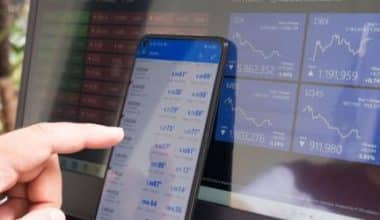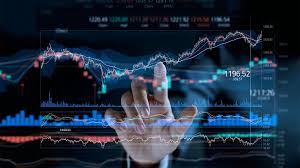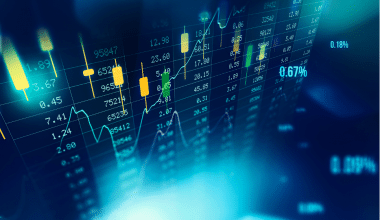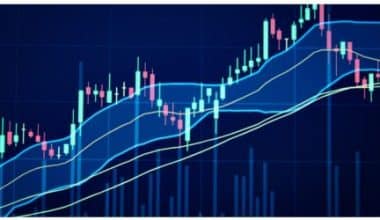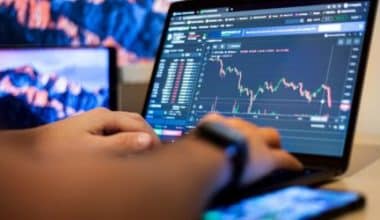Forex trading involves the buying and selling of currencies, and it operates in a decentralized market, making it accessible 24 hours a day, five days a week. Understanding the concept of leverage is vital, as it allows traders to amplify their potential profits, but it also comes with increased risk. Embracing forex trading signals can be a valuable tool in making well-informed decisions, as they offer analysis and recommendations from experienced traders or automated systems. By being aware of the specific forex trading hours, you can effectively plan your trading strategies and maximize your opportunities in the global forex market. In this article, we will provide you with valuable insights into what forex trading is all about, including a deeper understanding of forex trading leverage, the significance of forex trading signals, and the importance of forex trading hours.
What Is Forex Trading?
Forex trading, short for foreign exchange trading, involves buying and selling currencies in the global financial market. It is a decentralized market, meaning there is no central exchange, and currencies are traded over the counter electronically. Forex trading is the largest and most liquid market worldwide, with a daily trading volume that surpasses all other financial markets. The market operates 24 hours a day, five days a week, allowing traders from different time zones to participate at any time.
In forex trading, traders aim to profit from fluctuations in exchange rates by speculating on the price movements of currency pairs. For example, if a trader believes the value of the Euro will rise against the US Dollar, they will buy the EUR/USD currency pair, expecting to sell it later at a higher price. Conversely, if they expect the Euro to weaken, they will sell the EUR/USD pair, planning to buy it back at a lower price. The ability to go long (buy) or short (sell) in the forex market allows traders to potentially profit in both rising and falling markets.
Forex trading offers various advantages, such as high liquidity, low transaction costs, and the availability of leverage. However, it is essential to recognize that forex trading carries inherent risks due to the volatile nature of currency markets. Traders must have a sound understanding of market dynamics, risk management strategies, and discipline to succeed in this highly competitive and challenging environment. As with any form of trading or investing, thorough research, education, and practice are crucial for aspiring foreign exchange traders.
What Is Forex Trading Leverage
Forex trading leverage allows traders to control larger positions with a smaller amount of capital. Moreover, it is provided by brokers to amplify potential profits, but it also magnifies potential losses. Additionally, leverage is expressed as a ratio (e.g., 1:100), indicating the amount of capital a trader can control. Furthermore, higher leverage increases the risk, requiring strict risk management to protect against significant losses. Understanding and using leverage wisely is crucial for successful and responsible forex trading.
What Is Forex Trading Signals
Forex trading signals are recommendations or alerts provided by professional traders, software, or analysis systems. Moreover, they help traders make informed decisions on when to enter or exit trades based on market analysis. Trading signals may include specific currency pairs, entry and exit points, and stop-loss levels. Furthermore, traders can receive signals via email, SMS, or through specialized platforms and signal services. Forex trading signals can be a valuable tool for traders to enhance their trading strategies and decision-making.
What Are Forex Trading Hours?
The forex trading hours are the hours when the currency market is open for trade. Also, the currency market is open 24 hours a day, five days a week, from Sunday evening to Friday evening. Furthermore, different financial hubs throughout the world participate in the market at different times due to different time zones. Furthermore, when numerous major financial centers overlap, such as the London and New York sessions, the most active and volatile trading hours occur. Understanding forex trading hours is critical for traders looking for the best trading chances and liquidity.
Read: Forex Myths – Debunk And Know The Truth
What Is Forex Trading About?
Forex trading is about buying and selling currencies in the global foreign exchange market to profit from exchange rate fluctuations. Moreover, it involves speculating on currency pairs’ price movements, aiming to capitalize on rising or falling values. Additionally, forex trading operates 24/5, with various financial centers participating at different times, ensuring continuous trading.
Furthermore, traders use technical and fundamental analysis to make informed trading decisions and manage their risk. Forex trading offers opportunities for potential profits but requires knowledge, discipline, and risk management for success.
What Is Forex Trading and How It Works?
Forex trading, also known as foreign exchange trading, is a dynamic and decentralized financial market that buys and sells currencies. The basic goal of forex trading is to profit from changes in the exchange prices of currency pairs. These currency pairs, such as EUR/USD (Euro/US Dollar), are quoted in pairs and show the relative value of one currency against another.
Because forex trading involves financial centers in several time zones, such as New York, London, Tokyo, and Sydney, it runs 24 hours a day, five days a week. As a result, traders can actively participate in the market at any time, making it one of the world’s most liquid and accessible.
Forex traders open trading accounts with forex brokers, who operate as middlemen between the trader and the market. Forex brokers provide a variety of trading platforms from which traders may execute transactions, view real-time market data, and do technical analysis. Traders can also utilize leverage to raise the size of their bets and perhaps magnify their profits. However, because leverage magnifies possible losses, it must be used with caution.
Economic indicators, geopolitical events, interest rates, and market emotions are all elements that influence currency fluctuations in forex trading. To make informed trading decisions, traders utilize technical analysis (studying price charts and patterns) and fundamental analysis (considering economic and political issues).
To summarize, forex trading is a dynamic and easily accessible market that allows traders to participate in currency exchange while potentially profiting from price swings. Forex trading success needs knowledge, discipline, risk management, and an ongoing desire to learn and react to changing market conditions. Traders should always approach forex trading with a well-defined trading strategy and a dedication to ethical trading standards.
Read:Maximizing Your Forex Trading Potential: Choosing the Right Currency Pairs for Each Trading Session
How Do I Start Forex Trading?
To begin your forex trading journey, it’s essential to approach it with preparation and knowledge. Start by educating yourself about foreign exchange concepts, terminology, and fundamental principles. Numerous online resources, books, and educational courses are available to help you understand the market better. Practice trading on demo accounts offered by reputable forex brokers to gain practical experience without risking real money. This hands-on approach allows you to familiarize yourself with trading platforms, execution methods, and testing your trading strategies.
Selecting a reliable and trustworthy forex broker is crucial. Consider factors such as regulation, spreads, fees, customer support, and available trading platforms when making your decision. As you delve into foreign exchange, create a comprehensive trading plan. This plan should outline your financial goals, risk tolerance, trading timeframes, and strategies. A well-structured plan helps you remain disciplined and focused while managing your risk effectively. Start trading with a small amount of capital that you can afford to lose. foreign exchange inherently involves risk, and it’s crucial to begin cautiously, especially if you are still learning the ropes.
Monitor your progress and continuously evaluate your trading performance. Keeping a trading journal can be beneficial, as it allows you to analyze your trades and learn from both successful and unsuccessful trades.
Is Forex Trading a Gamble?
Forex trading can be viewed as a gamble because, like many speculative endeavors, it involves uncertainty and risk. The unpredictable nature of currency markets and the potential for substantial gains or losses may lead some to associate foreign exchange with gambling. However, it is essential to distinguish between responsible trading and pure gambling.
Unlike casino games, where outcomes are purely based on chance, a successful foreign exchange involves analysis, strategy, and risk management. Traders use technical and fundamental analysis to analyze market trends, economic indicators, and geopolitical events to make informed decisions. They develop trading plans and risk management strategies to protect their capital and minimize potential losses. Additionally, experienced traders understand that trading requires discipline, patience, and continuous learning to navigate the complexities of the market effectively.
While foreign exchange may have elements of chance, its resemblance to gambling diminishes when traders approach it with a well-thought-out strategy and an understanding of the factors influencing currency movements. Ultimately, the difference between foreign exchange and gambling lies in the trader’s approach, knowledge, and ability to manage risk effectively. Responsible forex traders focus on making informed decisions, embracing calculated risks, and striving for long-term success rather than relying solely on luck.
How to Trade Forex With $100?
Trading forex with $100 requires careful planning and risk management to make the most of your limited capital. Firstly, choose a reputable forex broker that allows trading with small account sizes. Moreover, consider trading micro-lots or nano-lots to manage risk effectively. Additionally, focus on currency pairs with lower volatility to minimize potential losses. Furthermore, develop a trading plan and stick to it, avoiding impulsive decisions driven by emotions. In conclusion, start with a demo account to practice your strategy and gradually transition to live trading with real money.
Also read: FOREX TRADER SALARY: Average Salaries in the US (Updated!)
How Much Money Do You Need to Start Forex?
The amount of money needed to start forex trading can vary based on individual preferences and risk tolerance. Additionally, some brokers offer the option to open micro or nano accounts, requiring a small initial deposit. Furthermore, traders can start with as little as $100 or $500, depending on the broker and account type. Moreover, consider your trading goals and the amount of risk you are comfortable with before deciding on an initial deposit. In conclusion, it’s essential to start with an amount you can afford to lose and gradually increase your capital as you gain experience and confidence in your trading skills.
What to Avoid in Forex Trading?
In forex trading, avoiding certain pitfalls is essential for safeguarding your capital and increasing your chances of success in the market. One common mistake to avoid is trading without a well-defined strategy. Emotion-driven decisions can lead to impulsive trades and substantial losses. Instead, develop a clear trading plan based on thorough analysis and stick to it, even during periods of market volatility.
Overtrading is another pitfall to steer clear of. Frequent and excessive trading can deplete your capital and disrupt your risk management efforts. Maintain discipline and patience, only executing trades that align with your strategy and offer favorable risk-reward ratios. Additionally, it is crucial to avoid using money in foreign exchange that you cannot afford to lose. Trading with funds reserved for essential expenses or debt repayment can lead to financial distress in case of significant losses.
Excessive leverage is another aspect to be cautious about. While leverage can amplify potential gains, it also magnifies losses. Overleveraging can quickly wipe out your account if the market moves against you. Carefully assess the appropriate level of leverage that aligns with your risk tolerance and trading strategy. Furthermore, be wary of blindly following the advice of others or relying solely on signals without understanding the reasoning behind them. Develop your knowledge and skills in forex trading, and only take advice from reputable sources.
What Does the Bible Say About Forex Trading?
The Bible does not directly mention forex trade, as it was written in a different historical context. Moreover, it primarily addresses principles of morality, ethics, and guidance for personal conduct. Additionally, biblical teachings emphasize honesty, integrity, and fair dealings in all financial matters. Furthermore, individuals should be diligent in managing their resources and avoid greed and excessive risk-taking. While the Bible does not specifically address forex trade, its principles can guide ethical behavior in financial activities.
FAQs
How much money do you need to begin trading forex?
You can start trading with $10, $100, $1000, or even $15000 and more. The more you invest, the greater your chances of making a profit. Forex typically necessitates large investments in order to generate a large profit.
How long does it take to learn how to trade forex?
To become proficient in forex, it takes at least six months to a year, however, this timetable might vary based on the individual’s history, dedication, and commitment to learning. Traders should begin by studying the fundamentals, then practice on a demo account before progressing to a live account.
How do you profit from FX trading?
Developing and testing a reliable trading strategy. Set a risk/reward ratio of at least 1:2, or have a high success rate while setting reasonable profit expectations.
Related Articles
- How To Trade Forex: A Beginner’s Guide
- The Impact of Foreign Exchange on Global Business
- Understanding the difference between Stocks and Forex
- 7 Tips for Choosing a Forex Broker(
- HOW TO DAY TRADE: Complete Guide to Day Trading for Beginners


